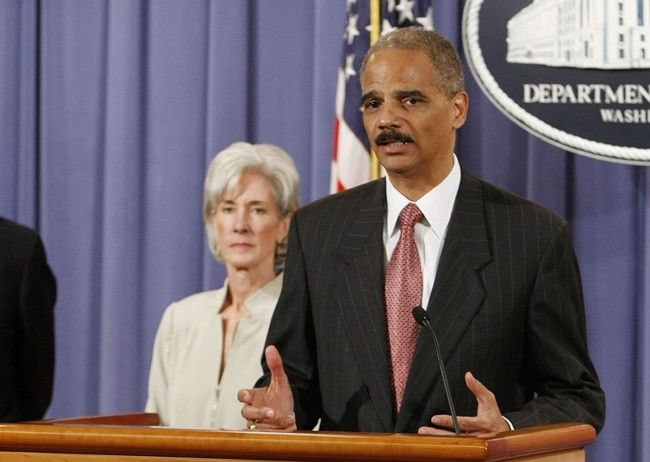Obama officials say health reform will prevail

The Obama administration's top legal and health officials defended the embattled health care law on Tuesday, saying they believe it will survive the legal challenges it faces.
On Monday a federal judge in Virginia declared a provision in the law unconstitutional. The specific measure, set to take effect in 2014, requires that most Americans buy health insurance or face a fine.
The initial decisions about the Affordable Care Act will be reviewed on appeal. We are confident that the law will ultimately be upheld, wrote Attorney General Eric Holder and Health Secretary Kathleen Sebelius in a an op-ed in the Washington Post.
About twenty lawsuits have challenged the so-called Individual Mandate provision in the law, with federal courts in Michigan and Virginia already upholding the law.
On Wednesday, Virgina Attorney General Ken Cuccinelli celebrated the judge's decision, but warned that this will ultimately be decided by the Supreme Court.
He called the ruling a critical milestone in the protection of the Constitution.
Virginia argued that the mandate to buy government-approved health insurance is illegal and that using the Constitution's Commerce Clause to force people to buy a product exceeds Congress's power.
The insurance mandate penalizes people for not engaging in commerce. In other words, you can get fined for doing nothing, Cuccinelli said.
Holder and Sebelius argue that the law is needed to control costs and end discrimination against people with preexisting conditions.
All of us need health care eventually. Do we pay in advance, by getting insurance, or do we try to pay later, when we need medical care? they wrote.
The individual responsibility provision says that as participants in the health-care market, Americans should pay for insurance if they can afford it.
The law provides subsidies to those who cannot afford to pay.
The officials say two federal courts have already said this unfair cost-shifting harms the marketplace.
Cuccinelli warned that while many may not be opposed to the requirement to buy something they are in favor of, allowing the health law to stand will open up the way for the government to intrude in other areas.
Cuccinelli said he initiated conversations with the Justice Department to fast-track the suit to the Supreme Court.
© Copyright IBTimes 2025. All rights reserved.





















